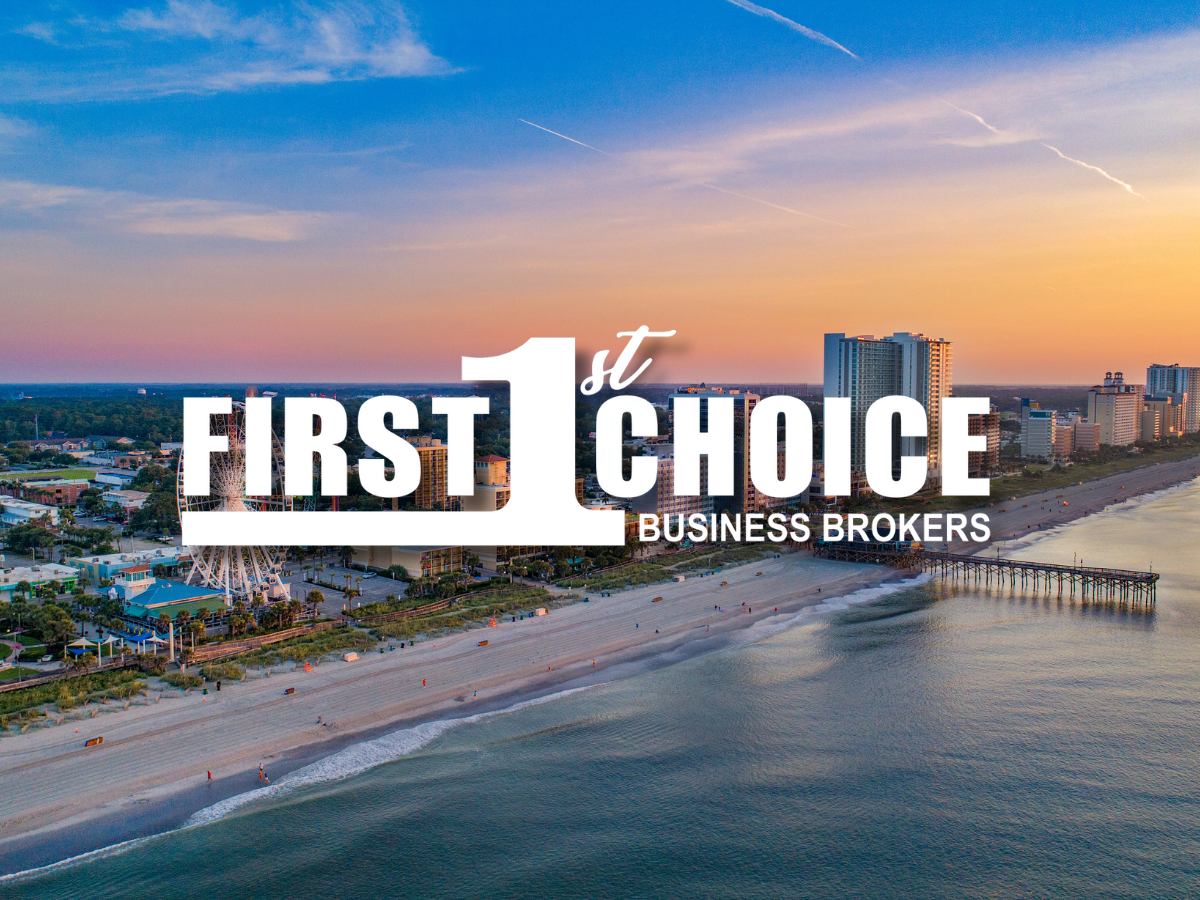Timing the Market: Understanding How Long It Takes to Sell a Business with a Business Broker
Selling a business through a business broker involves several critical aspects that influence the timeline of the sale. Business brokers bring expertise in valuation, marketing, and negotiation, ensuring the business is presented attractively to potential buyers. The time to sell a business varies based on factors such as industry, market conditions, and the business's financial health. Typically, it can take anywhere from six months to a year to complete a sale. Brokers streamline the process by identifying qualified buyers, managing due diligence, and facilitating smooth transactions, ultimately aiming to achieve a timely and favorable outcome for the seller.

Factors Influencing the Time to Sell a Business
Market Conditions
Market conditions play a crucial role in determining how quickly a business can be sold. Economic stability, interest rates, and overall market demand can either expedite or delay the sale process. Sellers should be aware of current market trends and consider timing their sale when conditions are favorable.
Business Valuation
A well-conducted business valuation is essential for setting a realistic asking price. Overpricing can deter potential buyers, while underpricing can lead to financial loss. Factors such as revenue, profit margins, and asset values are critical in determining the right valuation.
Industry Trends
Industry-specific trends can significantly impact the time it takes to sell a business. For instance, businesses in a booming industry may sell faster than those in a declining sector. Staying informed about industry trends can help sellers make strategic decisions about when to list their business for sale.
Understanding these factors can help business owners set realistic expectations and develop a more effective selling strategy.
How Prepared are You to Sell?
Financial Documentation
Clearly laid out final documentation will assist selling a business in Myrtle Beach. Buyers scrutinize financial records to ensure the business is profitable and sustainable. Your financial statements, tax returns, and profit and loss statements should be up-to-date and accurate. This transparency builds trust and can expedite the sale process.
Operational Streamlining
Streamlining your operations can make your business more attractive to potential buyers. Evaluate your current processes and identify areas for improvement. Consider automating repetitive tasks, optimizing inventory management, and enhancing customer service. A well-organized and efficient business is more likely to attract serious buyers.
Legal Considerations
Addressing legal considerations is essential when preparing your business for sale. Ensure all your business licenses, permits, and registrations are current. Review contracts with employees, clients, and vendors to identify any potential issues that could arise during the sale. Consulting with a legal professional can help you navigate these complexities and avoid potential pitfalls.
Preparing your business for sale involves meticulous planning and attention to detail. By focusing on financial documentation, operational efficiency, and legal compliance, you can significantly increase the chances of a successful sale. Whether you're looking to sell a business or find a business for sale in Myrtle Beach, these steps are fundamental to achieving your goals.
Marketing Strategies for Selling a Business
Targeting Potential Buyers
Understanding the profile of potential buyers helps tailor marketing efforts to attract serious inquiries. This involves analyzing the demographics, financial capacity, and interests of prospective buyers.
Effective Advertising Channels
Utilizing a mix of advertising channels can maximize exposure. Consider online platforms, industry publications, and social media to reach a broader audience. Diversifying advertising efforts ensures that the business is visible to various buyer segments.
Utilizing Broker Networks
Business brokers often have extensive networks that can be leveraged to find potential buyers. These networks include other brokers, industry contacts, and previous clients. Tapping into these networks can significantly speed up the selling process by connecting with pre-qualified buyers.
A well-rounded marketing strategy will attract the right buyers and achieve a successful sale. By combining targeted efforts, diverse advertising channels, and broker networks, sellers can enhance their chances of finding the ideal buyer quickly.
Negotiation and Closing Process
Handling Offers
When handling offers, evaluate each proposal carefully. Consider not just the price but also the terms and conditions. This includes payment structure, contingencies, and any seller financing involved. A business broker can help you navigate these complexities to ensure you get the best deal possible.
Due Diligence
Due diligence is the phase where the buyer examines your business in detail. This process involves reviewing financial records, legal documents, and operational procedures. Be prepared to provide comprehensive information and answer any questions that may arise. Transparency during this stage can significantly impact the buyer's confidence and the overall success of the sale. Many delays may take place as the result of a poorly prepared business with missing documentation, extending the time it takes to complete the transaction.
Finalizing the Sale
Finalizing the sale involves several key steps:
- Drafting the Purchase Agreement: This legal document outlines the terms and conditions of the sale.
- Securing Financing: Ensure that the buyer has the necessary funds or financing in place.
- Closing Meeting: Both parties meet to sign the final documents and transfer ownership.
The closing process can be complex, but with the right preparation and professional guidance, it can be a smooth transition. Make sure all legal and financial aspects are thoroughly reviewed to avoid any last-minute surprises.
Post-Sale Transition
Transition Planning
Effective transition planning will ensure a smooth handover after the sale of your business. A well-structured plan ensures continuity and minimizes disruptions. Key elements to consider include:
- Establishing a clear timeline for the transition period
- Defining roles and responsibilities for both the seller and the buyer
- Creating a communication plan to keep all stakeholders informed
A detailed transition plan can significantly enhance the chances of a successful business transfer.
Employee Considerations
Employees are a vital part of your business, and their well-being should be a priority during the transition. Addressing their concerns and providing clear information can help maintain morale and productivity. Consider the following steps:
- Informing employees about the sale as early as possible
- Offering support and resources to help them through the transition
- Ensuring that key employees are retained to maintain business operations
Client and Vendor Communication
Maintaining strong relationships with clients and vendors is essential during the post-sale transition. Clear and timely communication can help preserve these relationships and ensure ongoing business success. Important actions include:
- Notifying clients and vendors about the ownership change
- Reassuring them about the continuity of services and products
- Addressing any concerns they may have and providing contact information for the new owner
Frequently Asked Questions
How long does it typically take to sell a business with a business broker?
The time it takes to sell a business can vary widely depending on several factors, including market conditions, the business's valuation, and industry trends. On average, it can take anywhere from six months to a year.
What are the benefits of using a business broker to sell my business?
Using a business broker can provide several benefits, including access to a network of potential buyers, expertise in valuation and marketing, and assistance with negotiations and closing processes.
How do I choose the right business broker?
Choosing the right business broker involves researching their experience, asking for references, understanding their fee structure, and ensuring they have expertise in your specific industry.
What documents do I need to prepare before selling my business?
Key documents include financial statements, tax returns, operational manuals, legal documents, and any other records that provide a comprehensive view of your business's performance and operations.
How can I make my business more attractive to potential buyers?
To make your business more attractive, ensure your financials are in order, streamline operations, address any legal issues, and highlight growth opportunities and strengths in your marketing materials.
What should I expect during the negotiation and closing process? business valuation services support legal and financial processes?
During the negotiation and closing process, you can expect to handle offers and counteroffers, undergo due diligence where the buyer will scrutinize your business, and finalize the sale through legal documentation and transfer of ownership.
This blog is for informational purposes only and does not constitute legal, financial, or professional advice. The timeframe and outcomes for selling a business depend on various factors, including industry, market conditions, and the specific circumstances of the business. First Choice Business Brokers Myrtle Beach provides advisory services to facilitate the sale process but does not guarantee specific timelines or results. Sellers are encouraged to consult with qualified legal, financial, and tax professionals to address their unique needs and ensure compliance with applicable laws and regulations. Use of this blog does not establish a client relationship with First Choice Business Brokers Myrtle Beach or its representatives.







